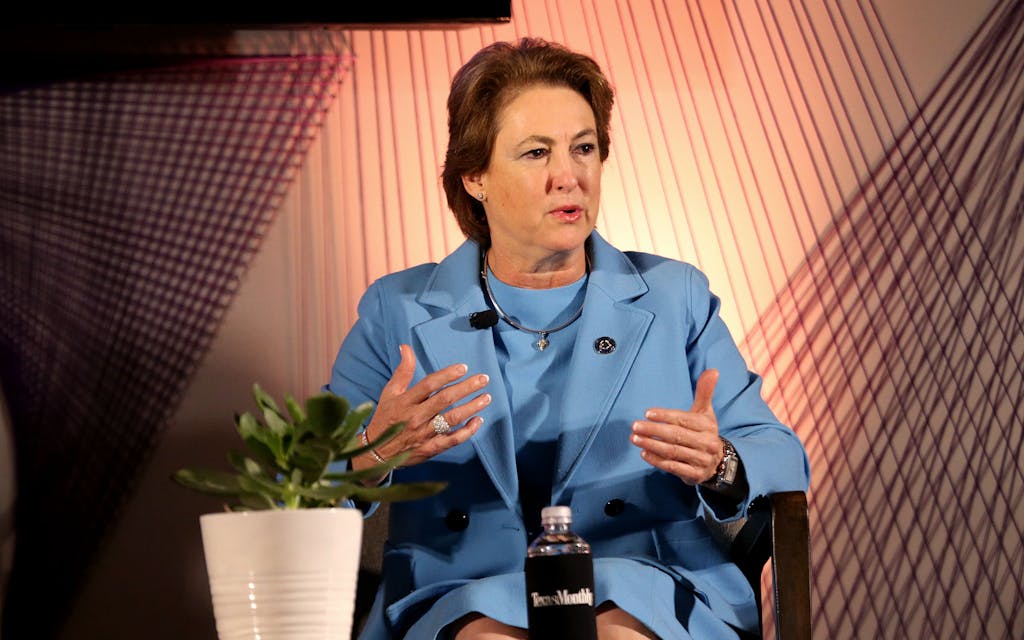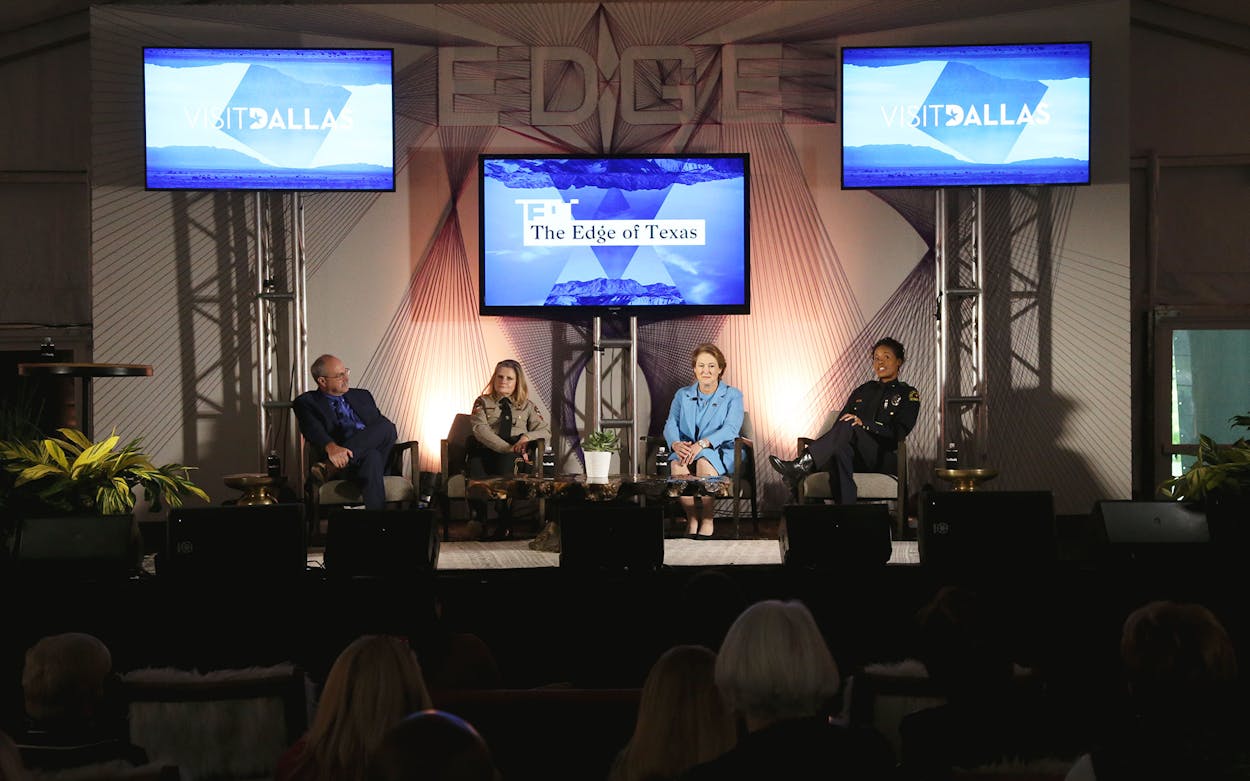Working in the male-dominated field of law enforcement, Dallas Deputy Police Chief Catrina Shead is used to standing out. But she sees that as a positive. “I’m thankful to be the only woman in the room,” Shead says. “After the men in the room get lost, they stop and listen.”
But at The Edge of Texas in Dallas Saturday, she wasn’t the only female law enforcement official in the room. In a conversation moderated by Texas Monthly politics editor R.G. Ratcliffe, Shead, Travis County Sheriff Sally Hernandez, and Harris County District Attorney Kim Ogg spoke about the battle for sanctuary cities, the importance of mental health in preventing mass shootings, and how residents can play a role in keeping their communities safe.
Shead, who has worked as a police officer for 24 years, sees more female officers as a crucial step towards building trust. “Communities are more apt to talk to us because they see us as a softer side of law enforcement,” she says. “We’re more approachable.”
Ogg agrees, proposing that women bring a valuable perspective to law enforcement in a range of different roles within the criminal justice system. “I’m a prosecutor, but I’ve worked in public policy, as a lawyer in private practice, and in non-profits,” she says. “Women bring a new relationship-based approach to problems, where we try to collaborate with our partners. We also reach out to the people who disagree with us.”

That ability to listen and collaborate is especially important when working within a community to promote public safety and prevent events like the tragedy in Sutherland Springs. “We’re in an epidemic of mass shootings, but just as we can prepare for fire drills or bomb threats, it’s the responsibility of law enforcement to have a plan, and for the community to be included in that planning process,” Ogg says. Both she and Hernandez emphasized the importance of strengthening mental health resources before individuals turn to crime, as well as providing programs for inmates. In Travis County’s jails, 33 percent of inmates suffer from a mental illness, and Hernandez spoke to the need for more crisis centers to give a second chance to those suffering. “Often when we talk about mental health, we don’t see a light at the end of the tunnel,” she says. “We need to change that conversation.”
All three women spoke to the importance of preventing violence by providing support for young people at an early age. “So many times, law enforcement is left holding the bag when the education system throws up their hands, or the mental health system isn’t funded,” says Ogg, speaking against zero tolerance policies for juvenile offenders. “Young people do develop out of these problems, and we have got to have a system that allows them to move on. The more people we can employ and keep in the workforce, the safer we can be.”
Both Hernandez and Shead spoke to the importance of investing resources in public schools from a personal perspective. “I’m a product of [the Dallas Independent School District], and we had kids that were ‘problems’ growing up,” Shead explains. “To be able to become a better student, you have to be around good students and positive people who are trying to educate you.” Hernandez, who credits school support for keeping her out of the other side of the criminal justice system after she ran away from home at fifteen, spoke about the importance of engaging with students as a police officer. “We’ve got to help the at-risk kids come to us,” she says. “Just like for minority communities, we need to be more than just law enforcement: We need to be a resource.”
Hernandez’s ability to be a resource for the Travis County community, she says, has been directly threatened by Senate Bill 4, which aims to outlaw sanctuary cities. “Since September 25 [when an appeals court allowed parts of SB 4 to go into effect], the knot in my stomach hasn’t left,” says Hernandez, who has witnessed how the fear of deportation prevents immigrant communities from reporting violent crimes. “I can’t go to the grocery store without someone coming up to me and telling me how afraid they are.”
Despite the legislation against sanctuary cities, Hernandez, Ogg, and Shead are all committed to developing safe spaces where residents can trust law enforcement. That requires active investment from community members. Responding to two audience questions about how to get involved, the women spoke about how all levels of involvement can make a positive impact, from calling 9-1-1 and reporting suspicious behavior to volunteering in local schools. “If we do a better job of protecting the vulnerable in our community, we help stop the prison pipeline, we help stop the fear in our immigrants communities,” Ogg says. “We have to look to ourselves to change our world.” For these women, that starts with a more representative, approachable law enforcement—and with a community willing to work together to build trust.






